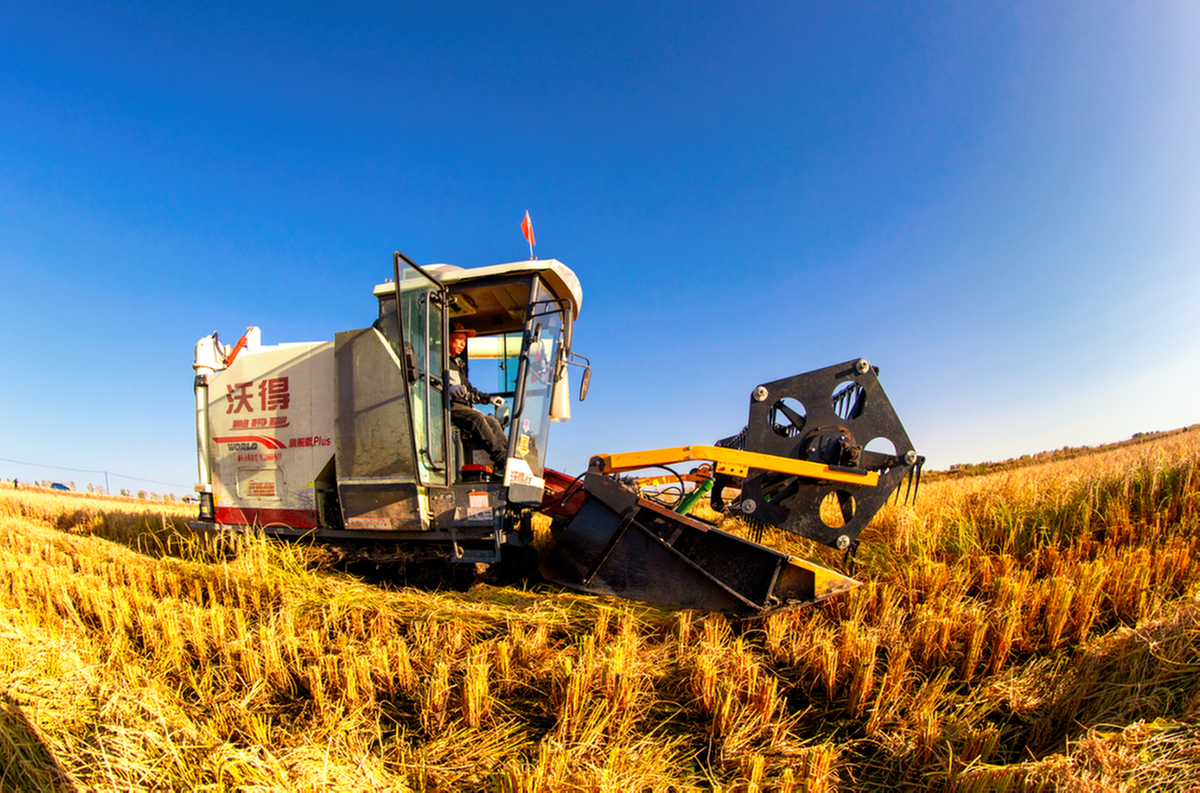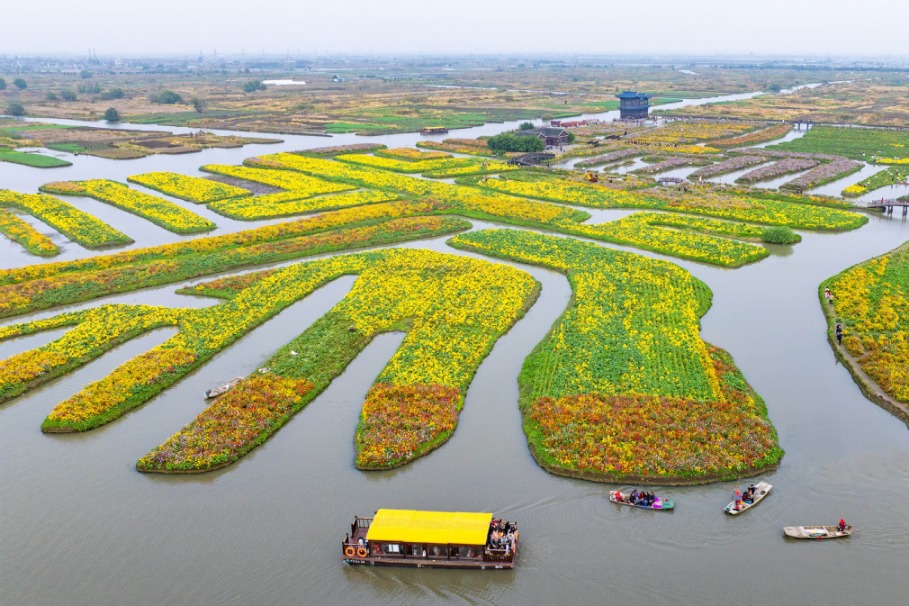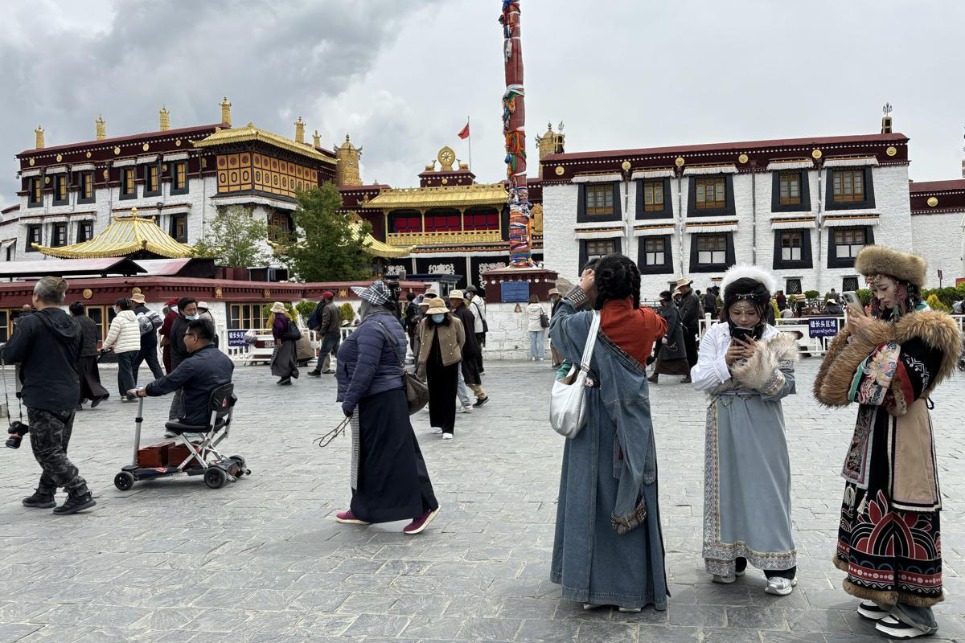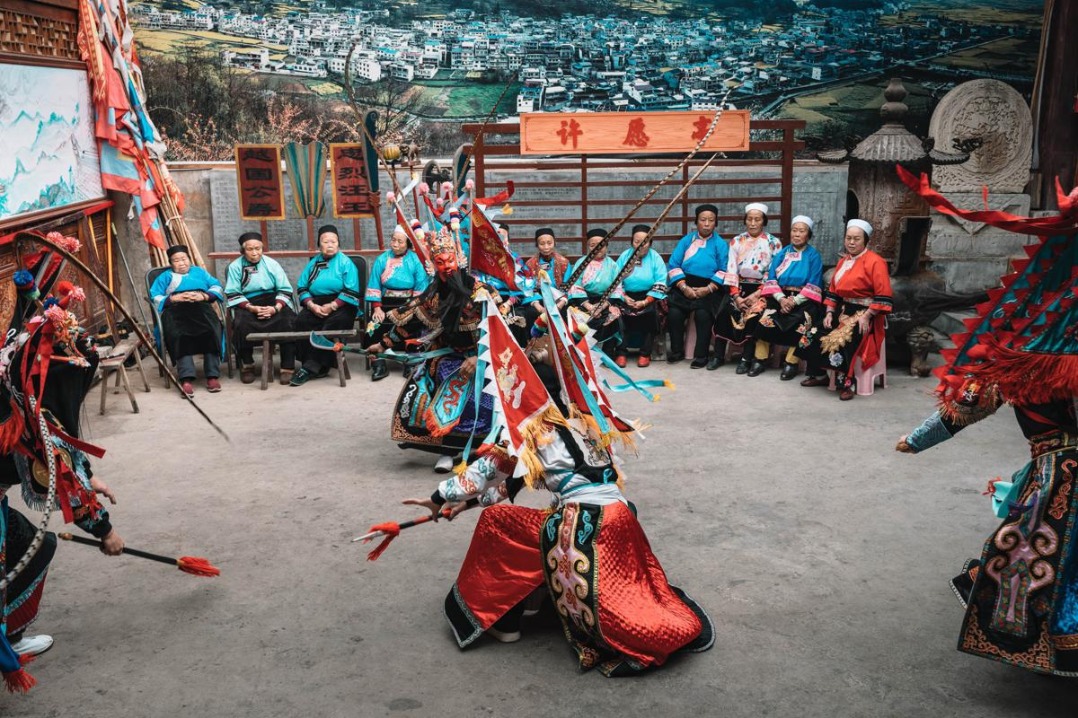Top food policy expert hails nation's efforts to bolster its grain resilience


Crop: Nation's stable supply a boon for global food security
China's recent efforts to curb its reliance on food imports and step up agricultural research funding have helped the world's leading food importer become more resilient to global grain price hikes and supply chain woes, a top international food policy expert said.
"China has made a tremendous effort to evolve its food production," said Bram Govaerts, director-general of the International Maize and Wheat Improvement Center, which is headquartered in El Batan, Mexico.
"China has invested a lot in science and technology for food security."
Govaerts made the remarks early this month during a weeklong visit to Beijing, where he sought to renew partnerships with Chinese researchers following the disruptions caused by the COVID-19 pandemic.
Govaerts said China's recent endeavors to increase crop production and investment in technology-driven breeding techniques, including gene-editing, had bolstered yields and made the country's food supply more resilient.
"The development of diversified supply chains has helped China to respond rapidly," he said.
In late October, the Ministry of Agriculture and Rural Affairs said that this year, the country's grain output is expected to exceed 650 million metric tons for the ninth consecutive year and hit a historical high despite some farmland being hit by heat waves and torrential rain over the summer.
The increased yield would be due in part to larger growing areas and the adoption of high-yield crop varieties, officials said at a news conference in Beijing.
Liu Han, who oversees the ministry's market and information division, said a range of factors had sent global rice prices to a 15-year high, including more extreme weather events, increasing protectionism, regional conflicts and a drought-induced export ban by India.
In comparison, China's domestic rice procurement price in September was just 0.7 percent higher than in January, Liu said.
Govaerts said stable food supply in China is a boon for the world. "If there's a lack of food security in China, it will put pressure on the supply chains because this is a big country with a lot of people," he said.
He described the current state of global food security as "scary". "One conflict can destabilize global wheat availability, and because of the conflict we had in one place, the world was suffering from increased wheat prices," he said.
Govaerts said the current food supply system was fragile. "We need resilience because if today there was a regional conflict, tomorrow there would be a disease," he said. "And climate change could take out whole areas of food if we do not prevent it."
The challenges meant that the world needs to revamp its food supply system, with countries producing a larger percentage of their food mix locally, he said.
Governments also need to increase small farmers' access to innovative technology, better seeds and information, he added.
Govaerts said the outcome of a recent drive to commercialize homegrown, genetically modified maize and soybean varieties in China had been very encouraging and would help reduce pesticide use, adding that GMO "needs to be a technology available in your tool kit".
He said that China, which used to scramble to feed its own population in the 1960s, had transitioned into an agricultural powerhouse thanks to decades of investment in agriculture. It now boasts highly educated scientists, strong data processing capabilities, molecular breeding know-how and seed production prowess.
Govaerts said China was a flag-bearer in the global sharing of germ plasm resources — genetic resources that are critical to developing higher-yielding and more nutritious crop or animal varieties. He praised China's efforts to send agrotechnicians to Africa as part of the broader Belt and Road Initiative to help bolster food production in hunger-prone regions as a boon to global food security.
"China is really getting together all the international actors," he said.
- Section of national highway collapses in Sichuan
- Exhibition highlights historical and cultural roots of Guangdong, Hong Kong, Macao
- China showcases latest advances in metrology at Hunan exhibition
- New research by Nankai University offers hope to women affected by infertility
- Cultivation in Yunnan paves the way for 'durian freedom'
- HK, Taiwan volunteers share their passion at games' opening





































